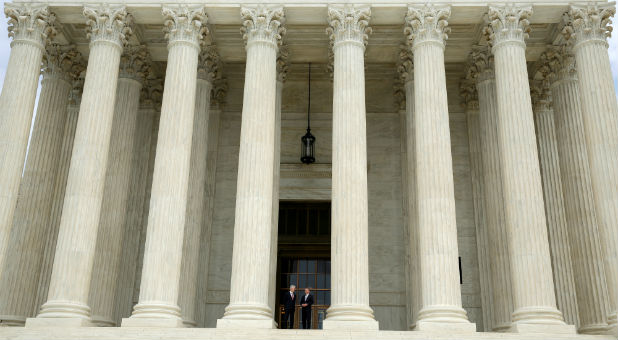SCOTUS to Finally Evaluate State’s Gerrymandering
The U.S. Supreme Court on Monday agreed to decide whether electoral maps drawn deliberately to favor a particular political party are acceptable under the Constitution in a case that could have huge consequences for American elections.
The justices will take up Wisconsin’s appeal of a lower court ruling last November that state Republican lawmakers violated the Constitution when they created state legislative districts with the partisan aim of hobbling Democrats in legislative races.
The case will be one of the biggest heard by the Supreme Court during its term that begins in October.
The lower court ruled that the Republican-led legislature’s redrawing of state legislative districts in 2011 amounted to “an unconstitutional partisan gerrymander,” a term meaning manipulating electoral boundaries for an unfair political advantage.
A panel of three federal judges in Madison ruled 2-1 that the way the Republicans redrew the districts violated the U.S. Constitution’s guarantees of equal protection under the law and free speech by undercutting the ability of Democratic voters to turn their votes into seats in Wisconsin’s legislature.
The Supreme Court has been willing to invalidate state electoral maps on the grounds of racial discrimination, as it did on May 22 when it found that Republican legislators in North Carolina had drawn two electoral districts to diminish the statewide political clout of black voters.
But the justices have not thrown out state electoral maps drawn simply to give one party an advantage over another.
The nine-member high court granted Wisconsin’s request, despite opposition from the four liberal justices, to put on hold the lower court’s order requiring the state to redraw its electoral maps by Nov. 1.
A Supreme Court ruling faulting the Wisconsin redistricting plan could have far-reaching consequences for the redrawing of electoral districts due after the 2020 U.S. census. State and federal legislative district boundaries are reconfigured every decade after the census so that each one holds about the same number of people.
“I am thrilled the Supreme Court has granted our request to review the redistricting decision and that Wisconsin will have an opportunity to defend its redistricting process,” said Wisconsin Republican Attorney General Brad Schimel, adding that the state’s redistricting process was lawful and constitutional.
The case in the short term could affect congressional maps in about half a dozen states and legislative maps in about 10 states, before having major implications for the post-2020 redistricting, according to the Brennan Center for Justice at the New York University School of Law.
‘Politics Going Haywire’
“Wisconsin’s gerrymander was one of the most aggressive of the decade, locking in a large and implausibly stable majority for Republicans in what is otherwise a battleground state,” said redistricting expert Thomas Wolf of the Brennan Center. “It’s a symptom of politics going haywire and something that we increasingly see when one party has sole control of the redistricting process.”
Under the Wisconsin redistricting plan, Republicans were able to amplify their voting power, gaining more seats than their percentage of the statewide vote would suggest. For example, in 2012, the Republican Party received about 49 percent of the vote but won 60 of the 99 seats in the state Assembly. In 2014, the party garnered 52 percent of the vote and 63 state Assembly seats.
After winning control of the state legislature in 2010, Wisconsin Republicans redrew the statewide electoral map and approved the redistricting plan in 2011.
A dozen Wisconsin Democratic Party voters filed suit in 2015 against state election officials over the redistricting, saying the Republican-backed plan divided Democratic voters in some areas and packed them in others in order to dilute their electoral clout and benefit Republican candidates.
After a trial last year, the district court panel agreed, invalidating the restricting plan statewide. It said redistricting efforts are unlawful partisan gerrymandering when they seek to entrench the party in power, and have no other legitimate justification.
The state appealed to the U.S. Supreme Court, arguing that recent Wisconsin election results favoring Republicans were “a reflection of Wisconsin’s natural political geography” with Democrats concentrated in urban areas like Milwaukee and Madison. {eoa}
© 2017 Thomson Reuters. All rights reserved.
















































